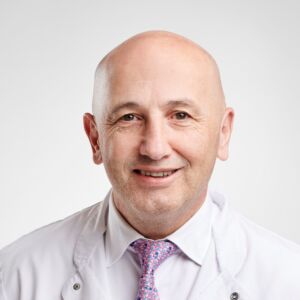If the psyche is doing well, this has a positive effect on the recovery process after heart surgery. A study is looking at exactly how the heart and soul influence each other to predict and prevent complications in heart patients with mental health problems.
“You have to imagine me as more or less a stranger shutting down your heart during surgery.” The statement by Omer Dzemali, Director of the Clinic for Cardiac Surgery at the USZ, immediately triggers unease – even in a person who does not have a heart condition. People undergoing cardiac surgery are greatly burdened by the often life-threatening risks. The loss of control during the eingriff can further exacerbate this. In fact, a significant proportion of these patients therefore struggle with psychological symptoms or even illnesses such as depression or anxiety disorders, both before and after surgery.
Holistic treatment
What has been standard practice in cardiology at the USZ for some time now is now also making its way into cardiac surgery – as one of the first in Switzerland. Omer Dzemali has been working closely with the USZ psychocardiology team at Zurich City Hospitals for several years. Together, they developed an approach to identify patients’ psychological distress at an early stage and treat it, if desired. He is now establishing this offer at the USZ as well. Patients demonstrably profit from this. “It has been adequately researched that quality of life increases significantly when psychological symptoms are treated in addition to physical symptoms. A stable mental constitution can have a positive effect on recovery,” explains Roland von Känel, Director of the Clinic for Consultant Psychiatry and Psychosomatics.


